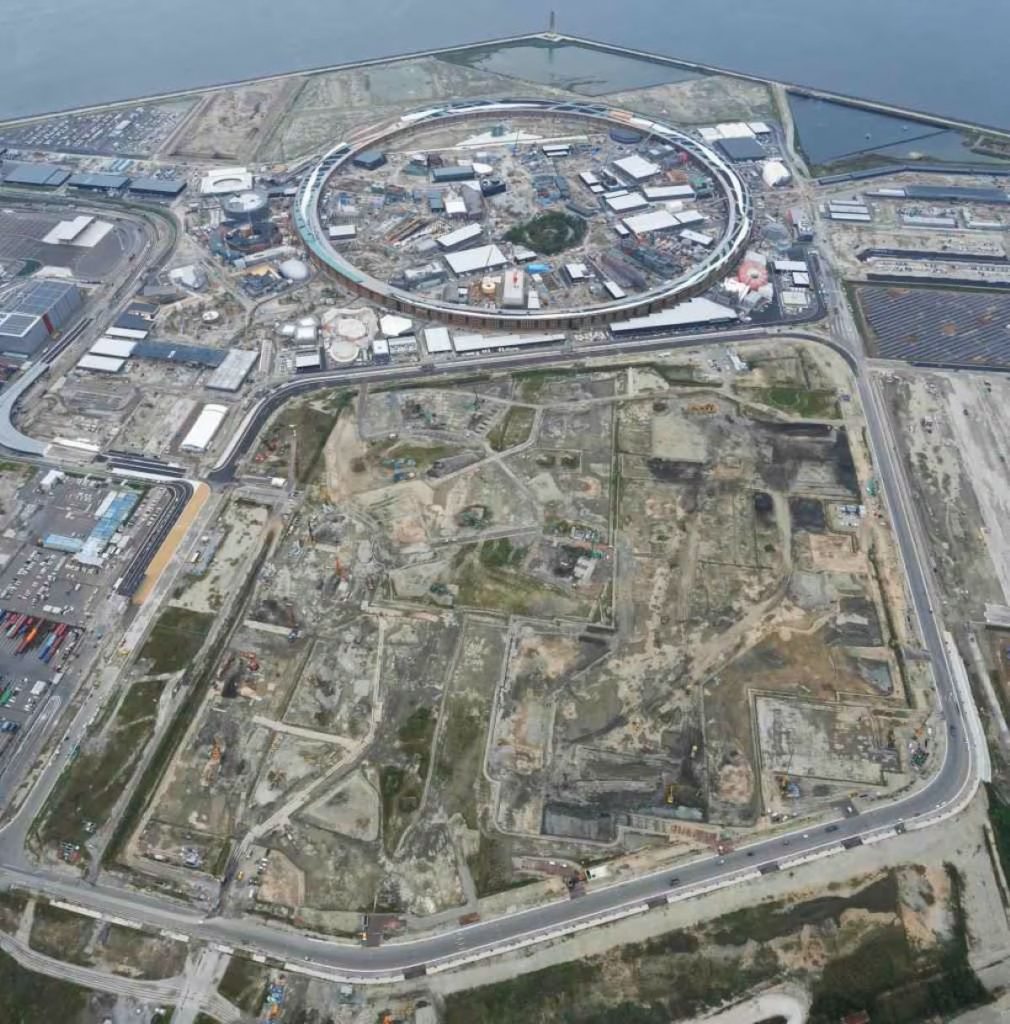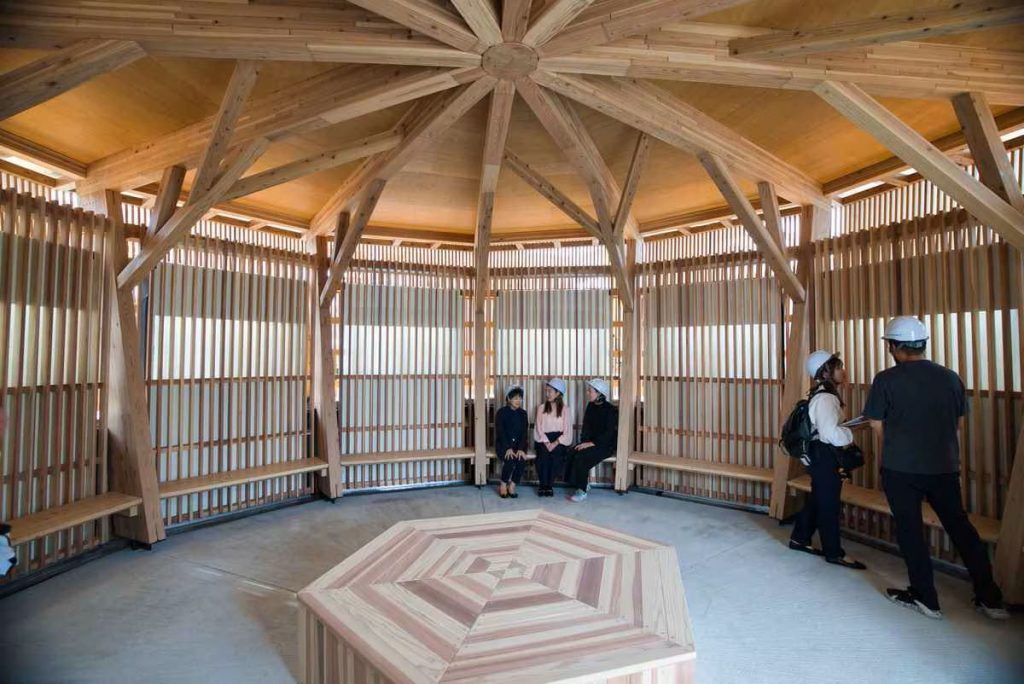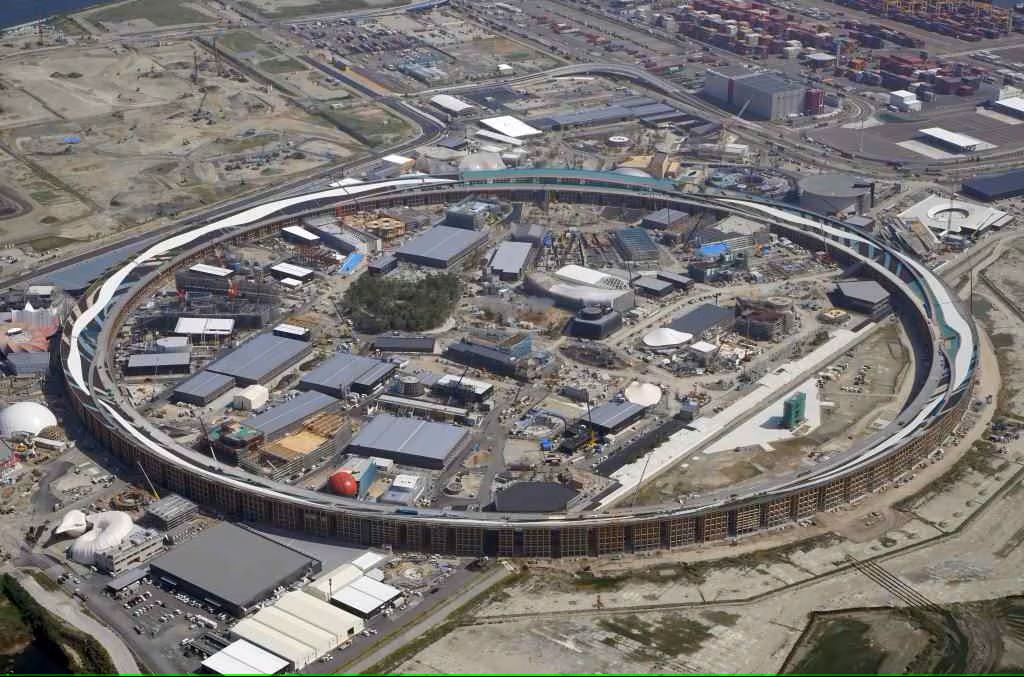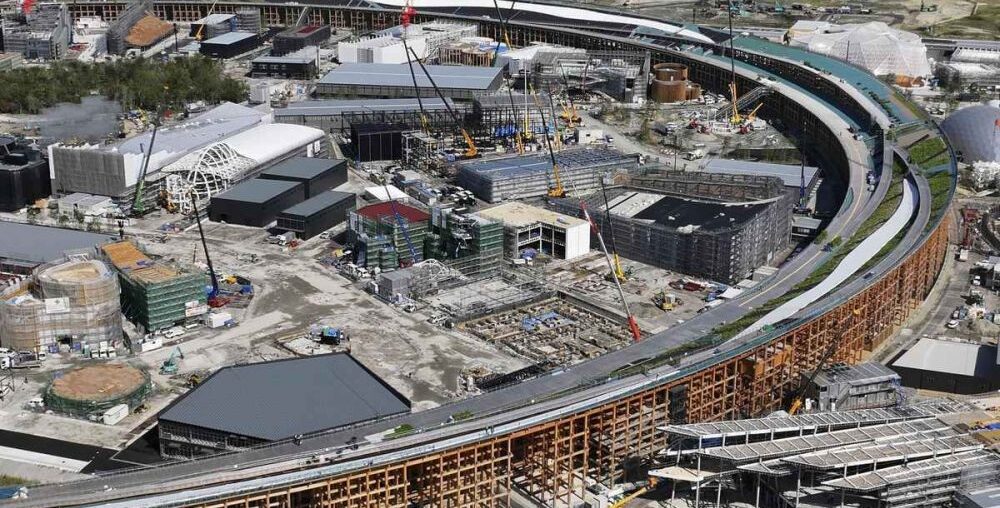The countdown to the official opening of the Expo 2025 Osaka, Kansai, is on. It passed the six-month mark on October 13. Onsite construction work on facilities at the venue is proceeding at a rapid pace. And the symbolic Osaka Expo “Grand Ring” has already been completed. It is one of the world’s largest wooden structures, with a circumference of approximately two kilometers.
However, completion of the international pavilions, which are supposed to be designed and built by participating countries, remains behind schedule. The Japan Association for the 2015 World Exposition, which is preparing and managing the expo, has called for exterior construction to be completed by mid-October. Interior construction should be finished in January 2025. Nonetheless, only about half of the work will be completed on time, according to the updated reports.


‘Designing Future Society for Our Lives’
The foreign pavilions are meant to be “flowers of the Expo.” In other words, they are the main attractions. However, the government needs to coordinate with Osaka Prefecture, Osaka City, and the Expo Association to advance and help spur completion.
The overall theme of the Osaka Expo is “Designing Future Society for Our Lives.” Its showcase event will be held on the artificial island of Yumeshima for six months, beginning April 13, 2025. One hundred and sixty-one countries and regions have announced their participation, exceeding the 120 countries at the 2005 Aichi Expo. In addition, approximately 28.2 million visitors from Japan and abroad are expected to come to the Expo.


Showcasing Science and Technology
The makeup of the Expo is gradually coming into focus. It will include the “Mars rock,” which is certain to be one of the highlights on display.” The rock is a meteorite collected by the Japanese Antarctic Research Expedition near its Showa Station in 2000. It also echoes one of the biggest attractions at the 1970 Osaka Expo, the “moon rock” brought back from the lunar surface by Apollo 12 astronauts.
As a “testing ground for future society,” the exhibition also plans to unveil groundbreaking technologies. These are expected to include future energy sources that will reduce carbon dioxide emissions to virtually zero. Hopefully, more discussion of these and other fascinating content will help create greater enthusiasm for the Osaka Expo.


Spurring Construction and Ticket Sales
Meanwhile, the delays in the construction of foreign pavilions are problematic. It is expected that some will remain unfinished even when the Expo opens. For some time it has been pointed out that delays were to be expected because of soaring material and labor costs. Hopefully, authorities at the national, prefectural, and city levels will respond with a shared sense of urgency to speed up the construction.
Ticket sales also have not developed well, either. In October, the Osaka Metropolitan Government added Expo tickets to the list of gifts for individuals who donate to the city’s hometown tax scheme. However, as of October 6, advance sales had just reached about seven million tickets. That is only half of the 14 million target.
Paper tickets went on sale at convenience stores throughout Japan starting October 13. We have now reached crunch time for the promotion of the Expo, both at home and abroad. Everyone in Japan needs to pitch in to make the event a success.
RELATED:
(Read the editorial in Japanese.)
Author: Editorial Board, The Sankei Shimbun

